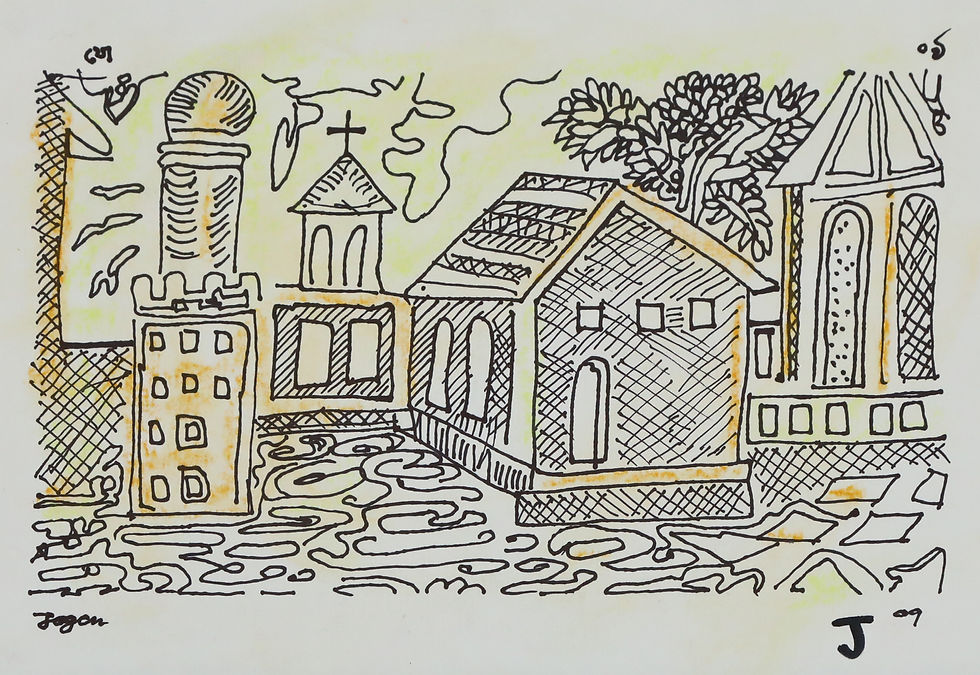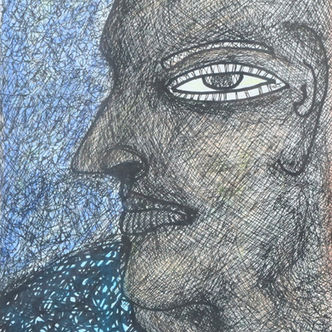Jogen Chowdhury
Jogen Chowdhury, born in 1939 in Bengal, India, is one of the most influential contemporary Indian artists known for his distinctive style that blends traditional Indian art forms with modern expression. He studied at the Government College of Art & Craft in Kolkata and later at the Delhi College of Art. Chowdhury’s early exposure to both classical Indian art and modernist ideas shaped his unique visual language, characterized by intricate line work, rich textures, and a strong emphasis on the human figure. His art often reflects social and political themes, exploring the complexities of human emotions and relationships.
Chowdhury’s signature style revolves around his masterful use of lines and washes, creating fluid, dynamic compositions that evoke a sense of movement and depth. His figures often elongated and exaggerated capture the inner psychology of his subjects, blending the mythical and the real. Through his work, he has explored themes such as femininity, identity, and cultural memory, frequently drawing inspiration from folk traditions and everyday life. His prints, paintings, and drawings are noted for their poetic intensity and emotional resonance, making him a prominent voice in Indian art.
Over the course of his illustrious career, Jogen Chowdhury has held numerous solo exhibitions across India and internationally, earning critical acclaim and prestigious awards such as the Padma Bhushan in 2010, one of India’s highest civilian honors. He has also served as a respected educator, influencing generations of artists through his teaching roles. Today, Chowdhury’s works are part of major collections worldwide, and he continues to create, inspiring new audiences with his evocative and deeply humanistic art.








